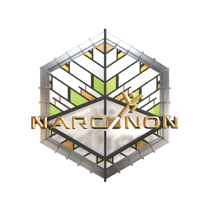Addiction Intervention: Providing Hope for Families of Addicted Loved Ones

Dealing with an addicted loved one is an emotional roller coaster beyond measure. It’s not unusual to feel a very wide range of emotions that usually bounce between guilt and anger. None of which provide rational thought. Without doubt addiction takes its toll on everyone involved.
In working with a loved one dealing with addiction, their are a few key elements which can greatly assist:
- An exact plan provides a better chance of a positive outcome and greatly reduces emotional reactions. This is key as emotional reactions can often turn into negative results and make the situation worse.
- Performing an addiction intervention with a professional also increases the chance of success in dealing with an addicted loved one.
These two steps can work in tandem where an addiction professional will commonly meet with all concerned who wish to assist or are in positions to assist the loved one to make the right decisions for their future. A plan is a vital aspect of this initial meeting.
By taking intentional steps, families can go from feeling helpless to finding hope. Equipping themselves with the tools and support needed to make a real difference.
The Emotional Impact on Families Supporting a Loved One Through Addiction
Many families get caught up in the loved one’s addiction and their support often begin with the best of intentions. A loved one starts struggling in life, maybe goes through a divorce, loses a job, gets put in jail and other terrible life situations and family members come to the rescue attempting to help; not considering underlying issues leading to the crisis. This leads one down a rabbit hole of supporting a loved one’s addiction. This is a journey filled with complex emotions, from fear, to exhaustion, to anger. The emotions affect every family member.
Many families find themselves constantly on edge, uncertain about the future or the next crisis. The emotional toll can lead to strained relationships and impact each person’s mental and physical health. This can also create a situation where individual members of the family wind up at odds with each other, each having their own thoughts on how to best deal with the addicted family member coupled with the frustration, fear and exhaustion of the unresolved addiction.
Acknowledging these feelings is an important first step toward healing. Realizing that these feelings are irrational and illogical can seem almost impossible, but coming to this understanding is a fundamental step in both healing and starting the process to address the addiction the loved one is under the effects of. Family members don’t have to face this alone—something can be done about it!
An intervention empowers families, shifting the focus from helplessness to proactive support. By addressing addiction openly and with compassion, families take meaningful steps toward recovery for both their loved one and themselves. An intervention is a proactive step in helping your loved one. Actions taken during times of duress and upset are reactive and predictably non-productive.
Recognizing the Need for an Intervention

It is never too soon to intervene on someone who is traveling a path of self destruction. Families and addicts often wait until a near fatal event happens and truth is, the signs have been there for years.
Determining when an intervention is needed can be difficult but is very important to ending the crisis of addiction. Common signs include escalating substance use, neglect of responsibilities, worsening physical or mental health, loss of job, and strained relationships. These are the red flags that are often excused, go unnoticed or are seen as less than they are, to the point of drastically not realizing the severity of the underlying addiction.
The myth of “hitting rock bottom before one will accept help” is just that, a myth. An intervention, when done correctly, provides the opportunity to “bring the bottom to them”. This greatly increases the likelihood the addict will realize the need to change and accept help.
Remember, it is never too soon to intervene, but it can be too late. People often get the idea they might be overreacting. When it comes to substance abuse, you can never overreact but can always under-react.
An intervention provides a structured, supportive opportunity to confront the issues and encourage treatment. An interventionist’s job is to change the course the addict is on. This helps the addicted and the family. The idea is for the intervention to get the addict to be willing and set-up to go to rehabilitation before it’s too late and a tragedy occurs.
Understanding What an Intervention Is and Isn’t
Many people have the misconception that an intervention forces someone into treatment against their will. That is simply not true. Everyone who enters an addiction treatment facility does so willingly regardless of the circumstances in which they arrive.

An intervention is a well thought out and compassionate approach to encourage a loved one with addiction to seek treatment.
At times when family members speak to an addict the communication can become volatile on all sides, the intervention is specifically designed to not be confrontational or volatile. An intervention is not about judgment or punishment but is designed to present a united, caring message from family and friends. An effective intervention is centered on love, respect, and clear communication, focusing on how addiction impacts everyone involved.
An intervention for drug addiction is not about forcing change but instead offering a path to recovery. Emphasizing that support and resources are available every step of the way. The intervention is offering hope to resolve the addiction. It is also about removing any and all support of the addiction if the person refuses to accept help. This is known as enabling. When you provide support of any means you are contributing to the addiction and rewarding bad behavior.
Preparing for an Intervention: A Step-by-Step Guide for Parents
Preparing for an intervention is a thoughtful process that requires planning, preparation and execution. Properly preparing for an intervention requires someone willing to take responsibility for overseeing the process. This person ensures that each step is followed correctly to set the stage for a successful outcome. Oftentimes, and for the best chance of success the person to facilitate these steps is an intervention professional.
Their are steps like:
- Lining up the treatment center to ensure there are no barriers upon intervention success. Obviously, the Narconon program is a very good choice.
- Next, assembling a close group of family and friends who care about the individual can help create a unified approach.
- Each person should prepare impactful statements, sharing specific examples of how the addiction has affected them and why treatment is essential. These are also known intervention letters. An interventionist will help guide this process.
- Setting a calm, neutral location for the intervention is key.
- Plan for any possible objection the person is going to manufacture.
- Prepare yourself for any possible reaction the addicted person may have.
- Looking over travel arrangements so that a smooth transition to rehab can take place.
- Pre-packing a bag so there is no delay in the decision and the outcome of arriving to a treatment center.
- Leaving immediately with no delay to the chosen treatment center.
The above are general guidelines. A professional will give specific details, guidance and advice on all steps needed.
Now, are you ready to take the first step toward healing? With the right preparation and support, an intervention can change everything. Reach out to learn how we can guide your family through a compassionate, effective approach to lasting sobriety.
What To Expect During An Intervention

A Calm, Supportive Environment
During an intervention a calm and supportive setting, usually in a neutral place like a family home or a counselor’s office is the right location. This atmosphere is designed to make your loved one know they are safe and put them in a position where they are open to listening.
Your loved on going through addiction can get defensive. You must prepare yourself for that. They may try to push emotional buttons to create drama and upset. No one can react to this! Stay calm, focused, controlled and carry through with your message and your plan.
Heartfelt Sharing and Clear Communication
In the prepared location, family members and close friends take turns sharing how much your loved one means to them and how addiction has affected them. These messages focus on love, concern, and a desire for change rather than judgment. Each participant speaks honestly but gently, aiming to encourage acceptance and understanding. Intervention letters are used to help control the communication and avoid bantering back and forth.

A Structured Plan and Invitation to Treatment
A successful intervention typically ends with an invitation to accept treatment. A clear plan must be in place for this outcome, often involving pre-arranged treatment options ready to begin immediately. Your loved one will have the option to step into recovery with the full support of everyone present. The goal is to encourage change and offer a path forward.
A refusal of help is presented as not acceptable. A complete plan of support is offered if help is accepted. Withdrawal of all support happens if the person refuses help so that family and friends are not contributing to the addiction and negative behavior.
What to Expect After an Intervention
After a drug or alcohol intervention, reactions usually end positively, although sometimes there are upsets during the course of the intervention.. The majority of individuals immediately agree to treatment while a much smaller percentage may need more time or initially resist. Interventions can work up to 85-90% of the time on the day of the intervention. If the boundaries outlined during the intervention preparation are held in place, up to 10–12% of the remaining will eventually accept help. These are extremely high odds that your loved one is on a positive path of recovery.

When your loved one accepts help, the intervention team should have pre-arranged treatment options ready. This ensures they can transition smoothly into next steps of recovery. Family members should be prepared for ongoing support, as recovery is a gradual journey involving professional treatment, counseling, and definite lifestyle changes.
If, under the small chance the person declines treatment, families may feel disheartened. It is vital that the intervention plan be carried through. The intervention team must stay hopeful and consistent in reinforcing support and boundaries. Professional interventionists can often provide follow-up support, guiding families on maintaining positive engagement. Families often experience relief and renewed optimism post-intervention, knowing they’ve taken a proactive step toward healing. Regardless of immediate outcomes, the process begins building a foundation for future very positive outcomes.


